The arts are recognized for their unique ability to build community through creative human expression. As a year-round cultural center in rural Maine, Snow Pond expands on this concept by uplifting the entire Belgrade Lakes region through an inclusive economic strategy centered on creative placemaking. With our cultural, recreational, and educational assets, Snow Pond is simultaneously a tourist destination and pillar of the region’s quality of life that attracts and retains talent.
- Tourism – dozens of concerts, festivals, and entertainment programs draw tens of thousands of patrons locally, across the U.S., and internationally.
- Creative Placemaking – hiking trails, pond hockey, concerts, extracurricular arts education, and farm-to-table dining contribute to a vibrant community that we continue to design through a community-based process intended to deliver greater economic impact through the arts.
- Talent Attraction & Retention – connecting Maine Arts Academy students with local institutions and offering exceptional quality of life amenities create a two-pronged approach to growing the young professionals and families living in the Belgrade Lakes region.
Of all our economic development strategies, education is the one with the greatest return on investment. Investment in the education of Maine people creates lifelong learners, opens pathways to promising careers, and produces civically engaged citizens. (Source: Educate Maine, Research & Reports, https://www.educatemaine.org/research-reports, January, 2021.)
|
ARTS is a core and integrated component across the entire curriculum. |
|
|
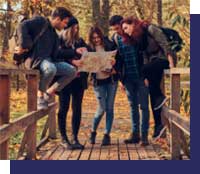 SCHOOL and students are key contributing members of the COMMUNITY. SCHOOL and students are key contributing members of the COMMUNITY. |
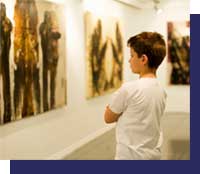 CREATE a nurturing learning culture that is not limited to the school campus. As both an arts education and community center, it is important that this environment extends BEYOND the schools and the campus. CREATE a nurturing learning culture that is not limited to the school campus. As both an arts education and community center, it is important that this environment extends BEYOND the schools and the campus. |
There are many reasons to make arts engagement opportunities more accessible in rural communities. Evidence gained from scientific research conducted throughout the past two decades indicates the important effect that music and the arts have on human growth and development, and how they improve, not only critical thinking, but social and emotional skills as well. This is true for people of all ages and backgrounds. Engaging within the arts, whether by experiencing it or creating it, has been shown to lower stress and improve memory and empathy. Importantly, participating in the arts also fosters community, as diverse participants build and share experiences together.
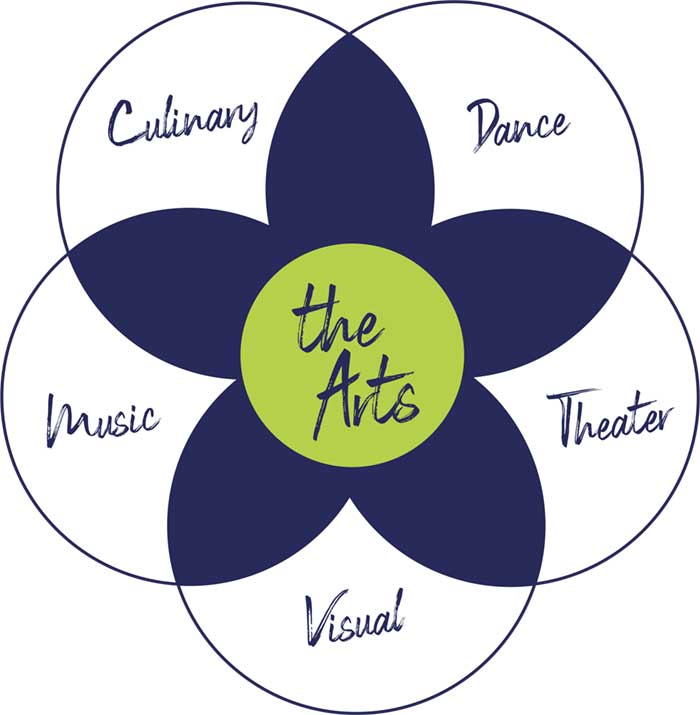
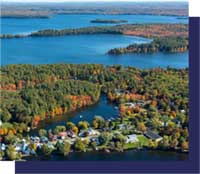 Community: By interweaving the arts into the fabric of a community, rural towns are able to attract and retain diverse talent, increase civic engagement, improve community cohesiveness and promote economic growth. Community: By interweaving the arts into the fabric of a community, rural towns are able to attract and retain diverse talent, increase civic engagement, improve community cohesiveness and promote economic growth. |
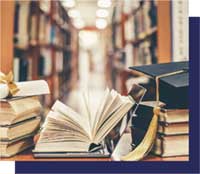 Academics: Students who are engaged in the arts are 4X more likely to demonstrate improved academic performances in math, reading and writing. Academics: Students who are engaged in the arts are 4X more likely to demonstrate improved academic performances in math, reading and writing. |
 Decision Making: The arts strengthen critical thinking skills in students of all ages, such as problem-solving, teamwork, communication and open-mindedness. Decision Making: The arts strengthen critical thinking skills in students of all ages, such as problem-solving, teamwork, communication and open-mindedness. |
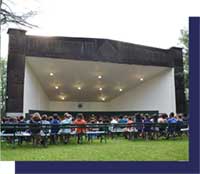 Preservation of Place: When citizens are engaged in the arts a community becomes a better place to live, work, and play. Preservation of Place: When citizens are engaged in the arts a community becomes a better place to live, work, and play. |
To provide innovative and high-quality education, inclusive of the arts, that supports academic achievement and cultivates the skills essential for people to reach their full potential.
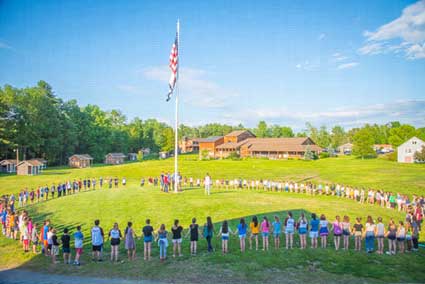
Rural school systems have a unique set of challenges primarily involving scale and funding that often fail to meet their needs, especially in sparsely populated states like Maine. In general, there are fewer students in each school; fewer dollars going to teachers and more going to fixed, administrative, and overhead expenses; fewer teachers who are also needed to cover multiple subjects so there tends to be less specialization; less choice in curriculum, and unfortunately, less choice in schools.
As of today, 56% -Percent of Maine high school students proficient in reading, 33% -Percent of Maine high school students proficient in math, Maine 62% NE 65% - is the percent of students completing a college degree within 6 years in Maine and New England, with the goal being to close the gap. (Source: Educate Maine, Research & Reports, https://www.educatemaine.org/research-reports, January, 2021.)
To improve these statistics and create true innovation in rural education that could result in significant systemic change, our goal is simple - to provide opportunities to ensure all students develop the knowledge, skills, and aspirations to reach their full potential. Snow Pond is concentrating on the vital areas where we believe policy and procedural changes will have the greatest impact on student results.
A more balanced, impactful, and inventive curriculum can be made available for each student within a nurturing, supportive culture. Summer programming provided here at Snow Pond for the last 85 years offers consistent and valuable insights into proven pathways for innovative solutions. Students who come from all parts of the US reflect a balance of both economic and cultural diversity. These students live and participate in an intergenerational community (for 4 -6 weeks) that offers a balanced and supportive program of arts, recreation, and social activities.
Snow Pond often finds in this summer program that students from rural communities have had very different learning experiences than their peers from other more urban/suburban areas. However, in a short time, we often see transformational results. Parents consistently comment on the astounding change they see in their children musically, socially, and especially aspirationally. Talent is not the differential factor in these students; it is the lack of exposure to opportunity. The challenge lies in how to take the triumphs and culture of the summer program, plus the successes of our expanded year-round programs, and over time apply them to rural public school and community settings more broadly and consistently.
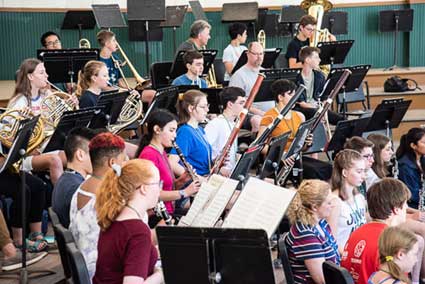
We believe transformational results can be consistently achieved through a combination of the four foundational components of our educational programming:
- Arts are a core and integrated component across the entire curriculum. An arts-centered curriculum provides enriched programming offering students an opportunity to imagine and explore, allowing their natural creative interests to emerge. Over time, as students experience music, dance, drama, visual arts, directly integrated within the core academics, they become more creative and develop the skills needed to be more collaborative, communicative, and focused. These gifts cultivated by the arts are especially important in rural regions where quality programming or access to many cultural events are often not as accessible.
- Choice and customization of learning opportunities are essential. Parents and students accept more accountability in the learning process when they have the ability to choose the school and customize some of their learning opportunities.
Today’s technology provides even more potential to move in this direction. Distance learning technology helps address the challenges of cost, specialized resources, and geography. Through the latest hardware and web-based software solutions, individuals and institutions can access lessons, engage in individual or group performances and classes, and learn from a global pool of talented artists and musicians, regardless of where the students or instructors are located. Snow Pond is equipped with strong broadband service and state-of-the-art technology, including cameras, microphones, and projectors, that enhance learning experiences by making it possible to watch a large screen and enjoy high-quality sound. This distance learning technology facilitates connection of onsite performances, lessons, and classes and remote talent to rural students and communities. - School and students are key contributing members of the community. Schools are generally one of the largest employers in rural regions and the largest component of the town budget, yet in most communities, school administration, communications, and activities are very separate from that of the town. Integrating the schools and the students into the fabric of the community yields many benefits. Students who are active and contributing members of the community develop more confidence and tend to be engaged learners.
There have been numerous studies on rural education that links place-based education that engages students with local terrain, local problems, and local assets to notable improvement in student achievement, student engagement, and broader school and community ties. As an example, in most rural areas there has been an outmigration of young people that greatly impacts both the schools and the community. To reverse this trend, young people need to be active participants in addressing outmigration. Snow Pond has a project for students, in high school and college thus far, to design a mixed-use community - cultural district that would be an attractive place for them to live in the existing rural environment. We’ve also asked them to think about how to brand, market, and attract people to our rural community. - Create a nurturing learning culture that is not limited to the school campus. As both an arts education and community center, it is important that this environment extends beyond the schools and the campus. Snow Pond is fortunate to have a beautiful 40-acre lakeside campus, where people are drawn together. Learning often happens best in this relaxed setting where the arts, informal conversation, recreation, community activities, and shared meals collectively create Snow Pond’s special culture and space for the community to interact.
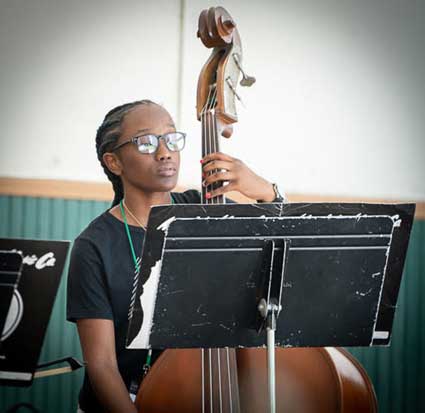
As an example, many rural areas now have a disproportionate share of senior citizens, many of which are anxious to interact with students and share their “stories”. They are also interested in learning from students about new technologies, or playing an instrument, for example. This creates a very powerful learning experience for students who directly witness this lifelong interest in learning. As more community members encounter Snow Pond, the more this culture and experience radiates throughout the region. When we ask students to describe Snow Pond, the most common answer is “magical.”
As is the case with all kinds of innovation, sustainability and leadership is paramount. Without question, additional resources are needed in rural regions and most importantly these resources need to be equitably allocated to each student. Additional resources include federal and state school and student funding, facility grants and loans, and operational grants. Also, public education systems need to provide more flexibility and openness: to leverage regional assets and programming that have had long-term sustainable success; to adapt to changing conditions and new technologies; and to find new methods and approaches to enhance every student's individual potential.
There also needs to be a better understanding that quality arts and education, including workforce education, are the essential drivers to rural prosperity. Making this happen will require coordination and explicit support from State and Regional Economic and Community Development agencies, the Department of Education, and the politicians that fund them. Snow Pond is at the forefront in providing leadership on building awareness of the major issues and opportunities in rural education, and importantly driving sustainable results and systemic change over time.
Business Sponsorship
Snow Pond Center for the Arts is privileged to have the support of community partners who make it possible for us to present the artistic and cultural programming that enriches the quality of life in central Maine.
Sponsors receive a limited number of complimentary tickets to a Snow Pond Summer Series Concert and may also elect to host a private reception at Snow Pond Center for the Arts, prior to or after a performance.
If you are interested in reviewing our sponsorship opportunities, please contact Christine Durgin at (844) 476-6976 ext. 804 or by email at . Sponsorships are available for a minimum of $100.
Please visit Snow Pond’s sponsors below.
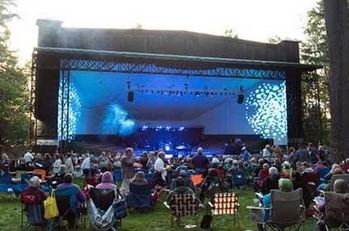
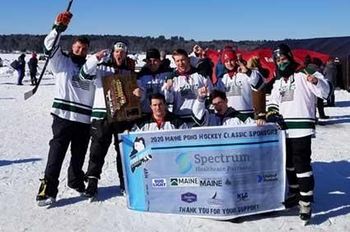



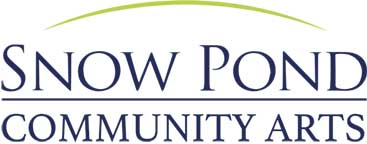 Music Lessons
Music Lessons